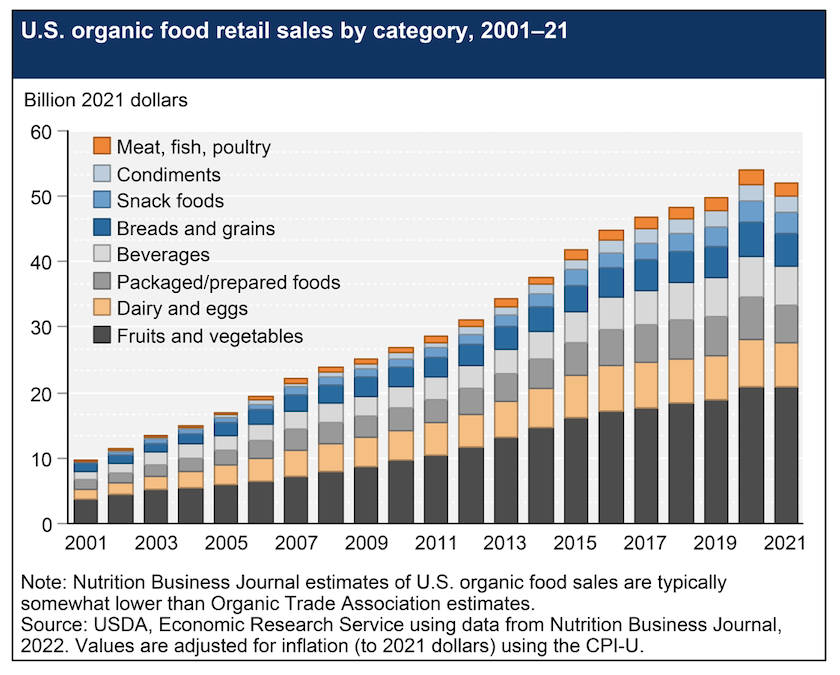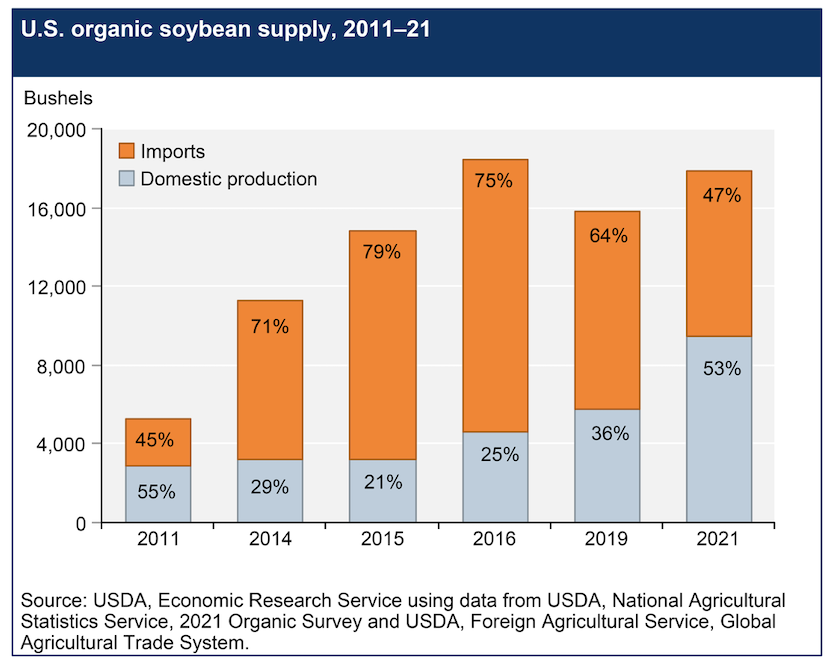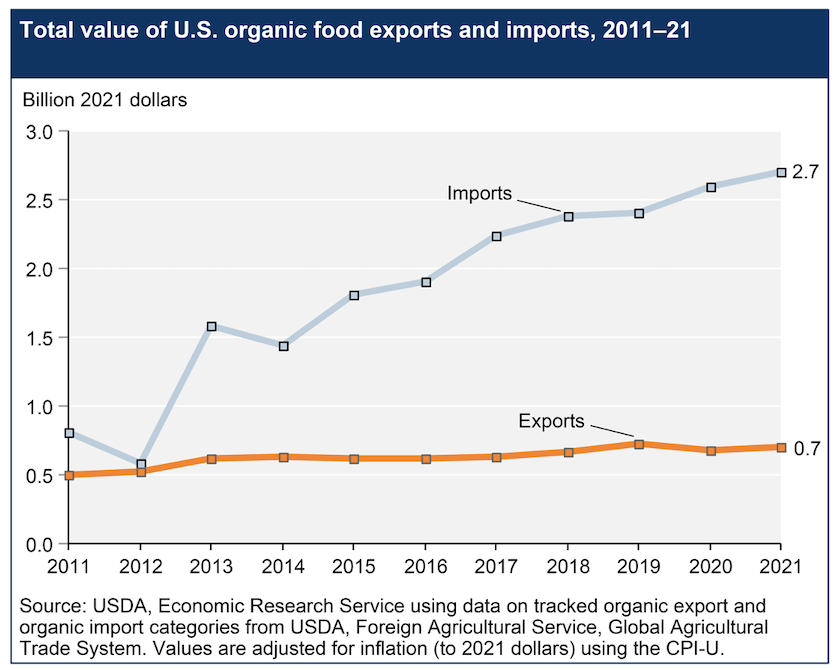John Phipps: The Slow Growth of Going Organic in Agriculture
U.S. Farm Report 12/09/23 - Customer Support
A straightforward question from Melody Kappenman from Leaf River, Illinois:
“How much is organic farming growing year to year? I'm hearing more & more about organic foods being available. Is organic farming anywhere near half of all farming in the United States and/or the world?”
This is a great question, and the answer was mildly surprising.
To begin with, data about organic products usually comes from producer organizations along with numbers from the USDA. While they show historic sales growth they almost never compare it to total retail food sales. For example, here is a chart showing organic sales since 2005. $60 billion dollars is pretty impressive. Until you compare it with total food sales.

Sales of food consumed at home were $1.05T in 2022 with food away from home $1.35T. Organic numbers are production, and USDA numbers are consumption.
Organic share of the food market is then anywhere from 2.5% to 6% depending on how you measure. Global organic sales are roughly twice as large, $133B, but total global food sales are three times as large, so the organic share is less than 2%.

Organic sales are growing but have a long way to go to comprise half of our consumption. Part of the problem with increasing organic sales is some food is really hard to produce organically. The biggest segment – produce – has been the most successful, but not all plants lend themselves to organic production.
Organic dairy is challenging since the rules require organic feed, housing rules, ration and medicine restrictions, and more. Organic meat production has many of the same hurdles, but the largest is organic feed components are difficult to produce, particularly meeting the non-GMO standards for corn.

Inflation has made consumers price sensitive, and organic production requires higher prices to offset costs.
The growth of U.S. organic market has been met in part by imports, especially fruits. I doubt organic market share will increase much due to such production issues, but also because objective proof of organic advantages for consumers is still sparse.







